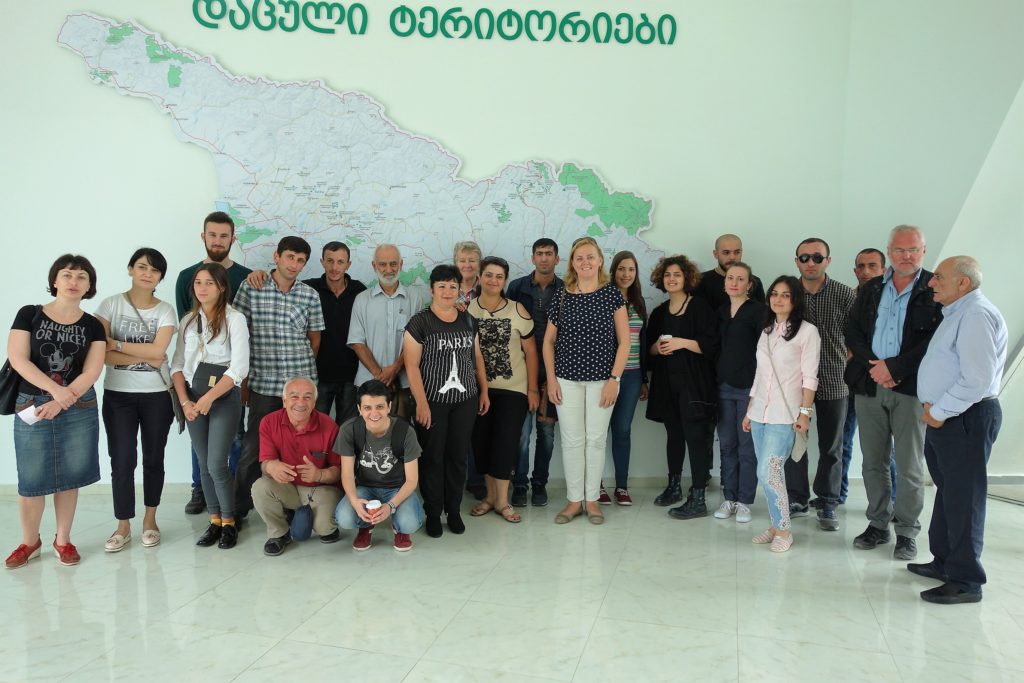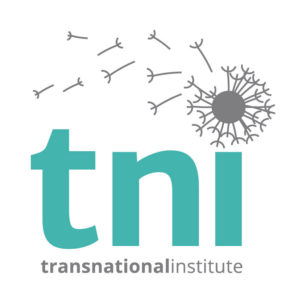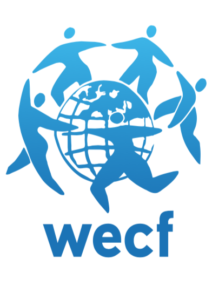Four community-based energy cooperatives have been set up to produce, promote and install these new technologies. These cooperatives are democratically governed by their members, encourage women empowerment through leadership training, gender quotas for the decision-making positions and generally integrating women’s concerns in the project approach. By 2021, more than 1,000 solar water heaters and 300 energy efficient stoves were functioning, and recently more were installed in kindergartens and small guesthouses.
Widespread poverty has hindered the adoption of the new water heaters and stoves, as people in the target areas cannot afford to buy them. Nevertheless, the cooperatives are stimulating a rightsholder process that altogether increases more environmentally friendly energy practices, awareness on gender equality and democratic decision-making in the communities. Moreover, WECF and partners are exploring potential financial mechanisms to enable wider adoption of the climate-friendly technologies.
Reliance on woodfuel harms health and the environment
In rural Georgia, 80 per cent of the population uses firewood in inefficient stoves for heating, cooking and heating water. Families spend up to 30% of their income on energy (mostly consisting of firewood), and yet most are only able to heat one room in their poorly insulated houses, and struggle to heat enough water to meet their needs.
Using fuelwood creates a heavy workload for both women and men. While male forest workers generally take on the risky job of gathering wood from forests, women are responsible for caring for the needs of their households, including managing heat and cooking. Since they tend to spend more time indoors, women and children are more affected than men by indoor air pollution caused by wet firewood in inefficient stoves. A report by WECF found that particulate matter pollution is up to ten times higher than the World Health Organization safe level in kindergartens using firewood. Meanwhile, about three times more firewood is used in Georgia than the forests can sustain, and forests are disappearing at an alarming rate.
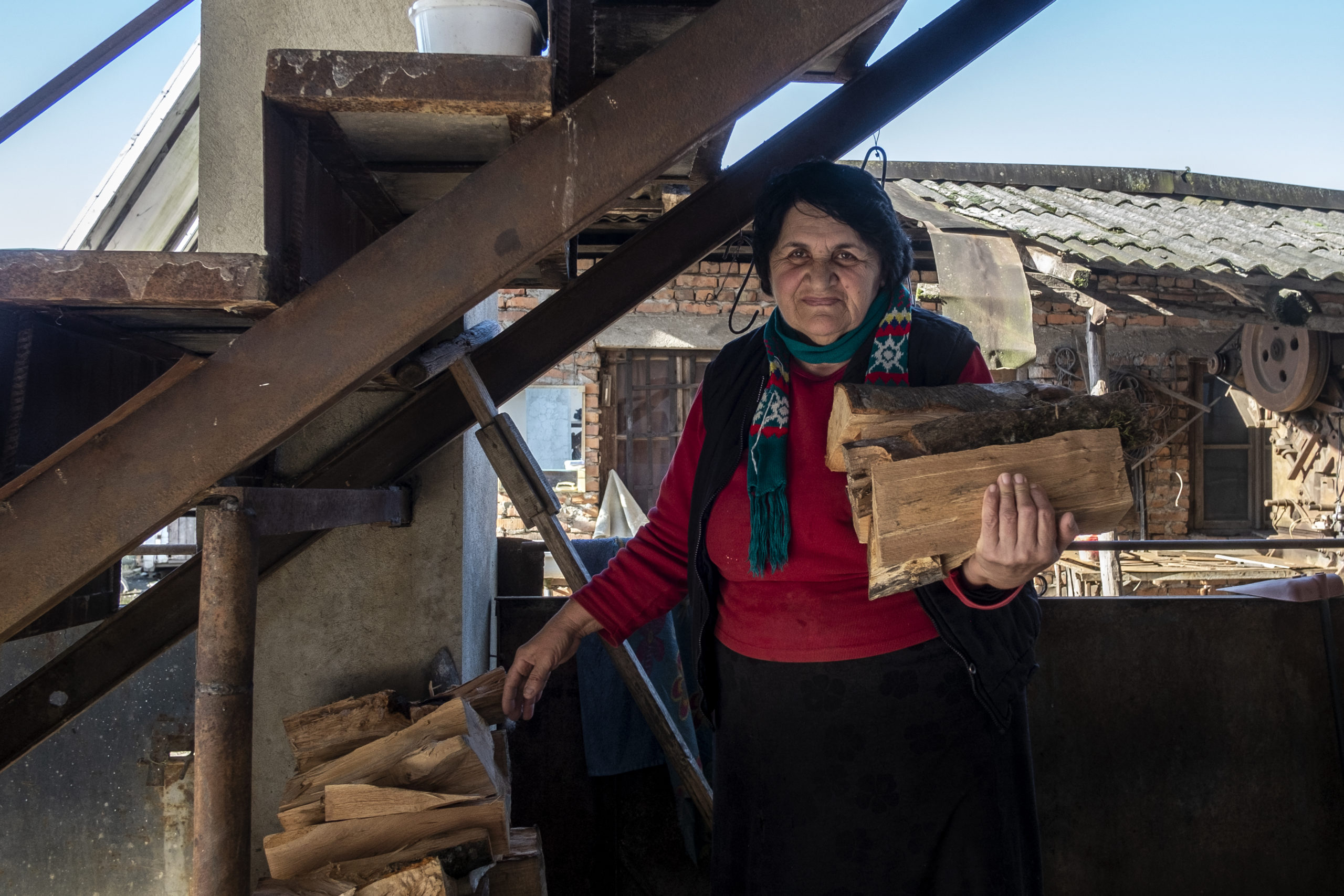
Women are responsible for managing heat and hot water in the house. This woman is on her way to her stove to heat it with wood.
As well as carrying a heavier domestic labour burden than men, women are also often excluded from decision-making, at home and in wider society. In rural areas, patriarchal mindsets prevent women from having decision-making power or participating in communal life. Stereotypes on women’s inabilities for leadership prevail.
A plan for gender-equitable, climate-friendly energy
Civil society organizations such as the Greens Movement of Georgia, supported by WECF, have been addressing energy poverty and the unsustainable use of firewood since 2009. They raised awareness of the issue, and designed solar water heaters and energy efficient stoves which can be made locally and which reduce the use of firewood by 30 and 50 per cent respectively, cuttingemissions by 1 and 2.55 tonnes of carbon dioxide equivalent a year.
The Government of Georgia reached out to WECF and its partners to help them develop a National Appropriate Mitigation Action (NAMA) for the energy sector. This was submitted to the United Nations Framework Convention on Climate Change (UNFCCC) and the NAMA Facility, and integrated in Georgia’s Intended Nationally Determined Contribution (INDC) to the UNFCCC.
The NAMA set out plans to transform the rural energy sector from reliance on unsustainable woodfuel to efficiency and use of renewable energy by:
- scaling up the use of solar water heaters and energy efficient stoves
- creating an affordable and self-sustaining financial mechanism to make sure that the technologies are accessible to all
- introducing government policies to enable the changes needed.
The five-year NAMA programme was supposed to accelerate the installation of renewable energy and energy efficiency technologies to reach between 15,000–40,000 households around 5,000 small and medium-sized enterprises and 4,000–5,000 public buildings by 2024. However, this project is not yet funded, andneither solar technologies nor energy efficiency currently play a significant role in Georgia’s climate or energy policies. There is also no legislation or meaningful mechanisms to promote the use of climate-friendly appliances by households.
The government has taken no significant steps to address rural energy poverty. Some municipalities have declared their intention to use more solar thermal energy in public buildings but are progressing very slowly due to a lack of financial and human capacity and political will. Meanwhile, Georgia’s NDC has an extensive chapter on gender, but this is not reflected in any other climate policy or action, with the exception of some large donor-funded programmes.
Currently, the main source of electricity is hydroelectric power plants. Recent plans for further hydroelectric developments through contracts with foreign corporations have invoked severe civil resistance, resulting in the halt of several big dam projects. The main reasons for the protests were that the contracts were extremely unfavorable for Georgia and a waste of taxpayers money and the lack of proper assessments of environmental impacts and seismic risk. At the same time, Georgia is expanding its gas network for an artificially low and subsidized price, without any social schemes.
Democratic community-based cooperatives increase women’s participation
WECF and its partners aim to address rural energy poverty while improving the livelihoods, hygiene, health and comfort of rural people, especially women, by supporting energy cooperatives and promoting the use of solar water heaters and energy efficient stoves on the level of pilot projects, seeking to expand.
The focus on cooperatives is an important element in Georgian society. After a traumatic communist past, Georgia has embraced neoliberal capitalism, which has left the rural areas deprived of appropriate social, economic and organizational structures. On the initiative of, and heavily funded by the European Union, agricultural cooperatives have gained government support and spread fast, bringing progress for many small and big farmers, although many have failed due to a lack of good management and cooperation. The energy cooperatives created through the WECF project are unknown and underfunded, but have the potential to create structural change in communities and cities.
The pilot phase (2010–2016) concentrated on technology development, capacity building, research and awareness raising. Local people were trained in how to manufacture the solar water heaters and energy efficient stoves and these were installed in private households and public buildings, paid for by subsidies.
In 2016, four cooperatives were set up to produce, install and maintain the water heaters and stoves in four regions: Imereti, Samegrelo, Samtskhe Javakheti and Shida Kartli. Thirty-one local people, 40% of them women, received training and took on management roles. This process was facilitated by Georgian NGOs, such as the Greens Movement of Georgia, Greens Regions, Rural Communicty Development Agency, Georgian Ecological Agricultural Association (SEMA) and Center for Sustainable Development Akhaltsikhe, WECF and the international cooperative Clean Power Europe.
The energy cooperatives are democratic and owned by their members. They currently have 128 members, of which a third are women, and they aim to include people from different backgrounds to be representative of their communities. To become a member, a resident buys shares costing €30–60. Each member has one vote, independent of the number of shares they hold.
The general assembly appoints the Board and approves all major decisions. The board should be at least 40 per cent of either gender. WECF provided leadership training for women cooperative members to improve their skills and confidence to speak up, and carried out awareness-raising activities in the communities to debunk stereotypes and promote gender equality.
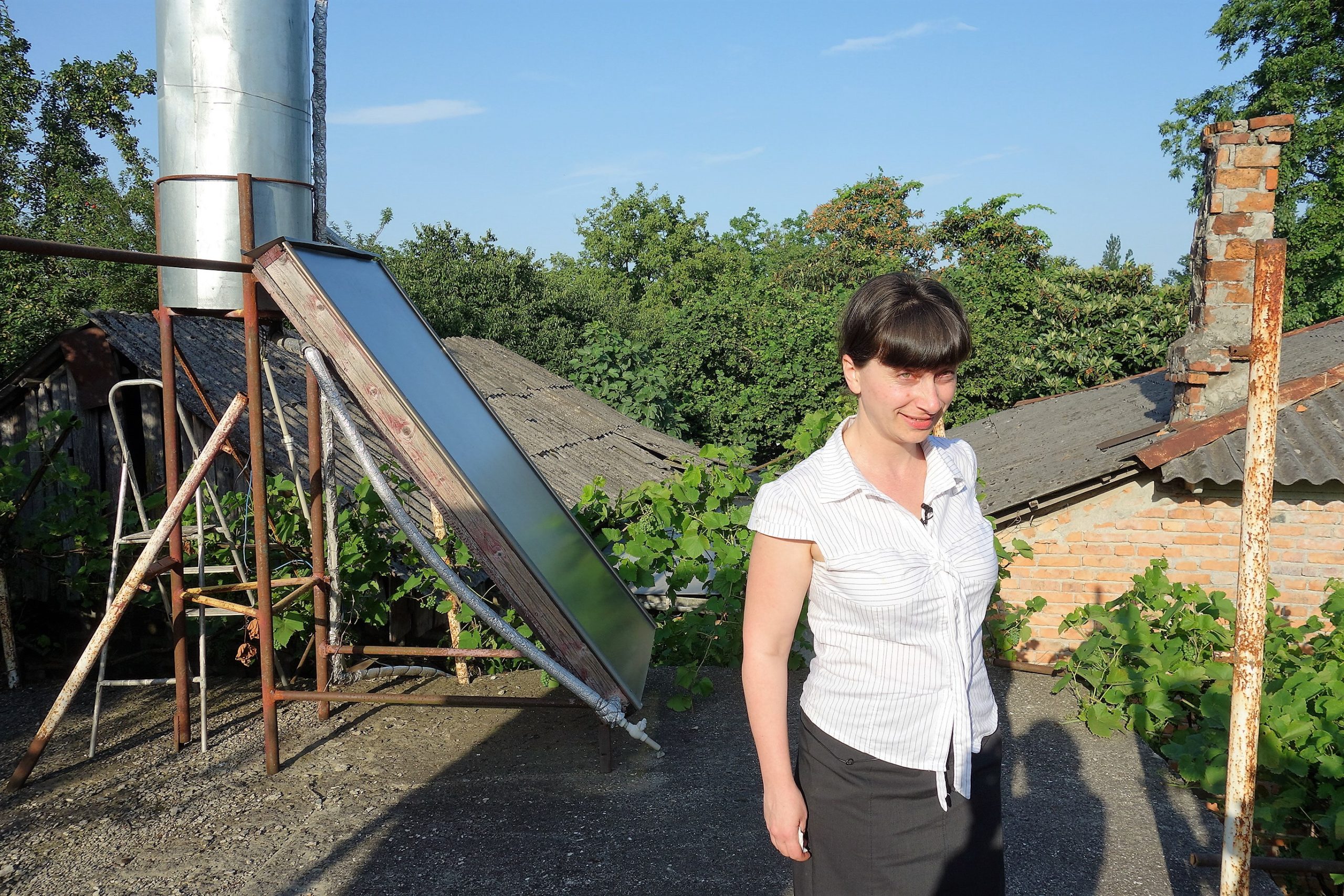
Marika Letodiani, the director of the energy cooperative ‘Switch on the Sun’, explaining the benefits of Solar Water Heaters in the village of Ivandidi.
The cooperatives are democratically governed, and work to improve social cohesion and trust in the community and agency over energy and heat production. They promote gender and economic justice, equal access to resources and human rights in their communities and cooperate with the local administration as much as possible.
A national umbrella cooperative was established to support the local cooperatives and centralize tasks such as marketing, buying bulk materials and cooperation with banks. Its members are the four local energy cooperatives, Solar Partner Süd (a German domestic energy technology company) the energy cooperative Green Power Europe, and a small private investor. Each member bought one share of €2,500 each.
Achievements
In the first phase of the project, 650 subsidized solar water heaters and 100 energy efficient stoves were installed in private homes and public buildings. Since then, more have been installed in kindergartens and small guesthouses and in 2021, more than 1,000 solar water heaters and 300 stoves were in use. The new technologies increase people’s comfort and reduce energy bills by 20–50 per cent as well as the burden of unpaid labour and indoor air pollution.
The energy cooperatives have reduced rural poverty by creating jobs in the communities and reducing energy costs for households, small businesses, schools and kindergartens. The cooperatives each employ one to six people part time, mostly promoting, producing and installing the technologies. The technologies pay back upfront costs through savings on energy bills in three to six years, and for the increasingly popular guesthouses even faster.
Women have often different priorities than men in terms of household investments, for example, they are more likely to opt for warm water rather than a new phone. Also on the community level, women have to deal with male dominance when taking an active role in advocating sustainable energy solutions. Providing leadership training to women cooperative members gave insight into existing stereotypes and the resulting power imbalance, and resulted in women having more self-confidence in making their voices count in decision-making. The communities as a whole have benefited from increased awareness of gender equality and its importance for sustainable development, as people see women in leadership positions.

One of the owners of a Solar Water Heater in Ivandidi village. She and about 120 other neighboring families now finally have running warm water in their house.
Financial mechanisms needed
Although the technologies have clear benefits and will pay back quickly, the initial investment is unaffordable for poorer households. In the pilot phase, subsidies enabled people to benefit. When these ended, it proved challenging to sell units at a commercial price. In the target regions demand was high, but people expected subsidies to continue and were not willing or able to pay the cost price. In other regions, there was little awareness around energy efficiency.
In 2012, during the pilot phase, a local NGO, the Rural Community Development Agency, experimented with a community-based financial mechanism with a flexible pay-back scheme. This showed that there is a high potential in this approach and women especially were eager to use it: 80% of the contracts concluded were with women. However it was not possible to legalize this mechanism so it could not be scaled up.
WECF and partners trained 183 interested people (60% of them women) to be ‘solar ambassadors’, to promote the adoption of solar water heaters, being paid upon successful sales. This stimulated orders for summer 2020, mainly from guesthouses, but when the COVID-19 crisis hit, demand reduced to zero due to the absence of tourists. Donor funding for the project also ended.
The umbrella cooperative concluded a contract with the micro-finance Credo Bank, which allowed costumers to take a one-year 0% loan to purchase a solar water heater or energy efficient stove. This was not a success. The costs were too high for households to pay back in one year, and people’s trust in banks is very low.
In 2021 a new law has been passed that allows people to pay the cost of the technology to the cooperatives from their energy savings. This is a good step forward but examples of good practice using this law have yet to be seen.
Research has shown that subsidies are the fastest way to promote the adoption of technologies that reduce the use of firewood. But due to corporate interests in the gas and hydroelectric industries, and a lack of capacity and awareness in the government, such mechanisms are not yet prioritized. However, civil society has voiced demands that the government and companies divest from gas into solar and wind energy and promote people’s right to energy. These calls have so far not been heard.
Conclusion and next steps
The energy cooperatives have demonstrated the potential of democratic, people-centered energy solutions, which empower women and stimulate a rightsholder process that reduces the unsustainable use of firewood.
The communities’ response to big hydroelectric plants and the roll-out of the gas network have shown that top-down energy solutions are often unpopular. Working with community initiatives to promote sustainable energy has proven more sustainable and government research and pilot projects have demonstrated a demand for and the economic viability of these technologies. However, without state support and donor funding, these renewable and energy-efficient solutions will not be widely adopted.
Currently no funding is available to support the development of the cooperatives. At the time of writing (February 2022), only two of the four local cooperatives are functioning, due to a lack of orders and funding. As long as the government fails to support the roll-out of these technologies, WECF and partners will continue to fundraise and carefully explore possible cooperation with socially engaged investors. Setting up an economically viable project that supports sustainability and social justice values has proved challenging with the limited human capacities available. We welcome new partnerships with Georgian and international organizations to advance energy democracy in our beautiful country.
The processes described above were partly financed by the European Union and other donors, for which we are beyond grateful.
Resources
CENN (2016)Study Report – Assessment of Firewood Consumption and Firewood Production Potential in Georgia: http://environment.cenn.org/sustainable-forestry/publications/study-report-assessment-firewood-consumption-firewood-production-potential-georgia/
Deutsche Welle (2018) Georgia: Affordable solar energy thanks to cooperativesshort documentary on the cooperatives and background situation:https://www.dw.com/de/georgien-erschwingliche-solarenergie-dank-genossenschaften/a-43879302
Samwel, A. and Muradashvili, A. (2021) ‘Why Gender in Georgia’s Climate Policies’, Caucasus Digital Digest.https://www.wecf.org/gender-georgia-climate/
National Center for Disease Control and Public Health of Georgia and WECF (2020) Indoor Air Pollution in Georgia. https://www.wecf.org/indoorairpollution_research_georgia/
We Research and WECF (2019) Monitoring the implementation of the Sustainable Development Goals in Georgia. https://www.wecf.org/monitoring-the-implementation-of-the-sustainable-development-goals-in-georgia/
WECF (2016) Feasibility study of gender-sensitive energy cooperatives in Georgia, Ukraine, Armenia and Moldova.https://www.wecf.org/feasibility-study-of-gender-sensitive-energy-cooperatives-in-georgia-ukraine-armenia-and-moldova/
WECF (2014) Proposal for Gender-Equitable, Climate Proof and Sustainable Development in Georgia: A National Appropriate Mitigation Activity (NAMA) for the energy sector in Georgia. https://www.wecf.org/proposal-for-gender-equitable-climate-proof-and-sustainable-development-in-georgia-a-national-appropriate-mitigation-activity-nama-for-the-energy-sector-in-georgia/
About the author
With a background in biology / ecology and rural development, since 2007, Anna Samwel has been working on rural development and gender equality projects in the Eastern Europe, Caucasus and Central Asia Region region with Women Engage for a Common Future (WECF). Now settled in Georgia, she works with local CSOs and energy cooperatives for a just energy transition and women’s empowerment.
Coordination: Lavinia Steinfort
Copy edit: Sarah Finch
Translator: Eto Jincharadze
This case study is a joint publication by the Transnational Institute (TNI) and Women Engage for a Common Future (WECF).
